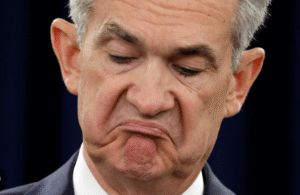$DG $USD $TSLA
#Trump #DollarStores #TradeWar #Canada #Musk #ElonMusk #Wealth #Politics #Tariffs #Retail #StockMarket #Crypto
The evolving political landscape continues to intertwine with economic policy, impacting markets and household finances alike. Former President Donald Trump’s influence on dollar stores, for instance, reflects broader economic trends driven by inflation and consumer spending patterns. Historically positioned as havens for budget-conscious shoppers, chains like Dollar General ($DG) and Dollar Tree have benefited as many Americans turned to discount stores amid rising costs of essentials. However, Trump’s imposition of tariffs during his presidency triggered higher input costs for imported goods, including items like household products and food staples. This led to price hikes at stores typically expected to offer low-cost alternatives, directly impacting their bottom line. Even post-presidency, Trump’s continued commentary on inflation and fiscal policy resonates with core retail demographics, signifying the ongoing linkage between politics and the performance of budget-focused retailers. Analysts suggest that the dollar store segment could face short-term headwinds if economic volatility persists, though long-term prospects remain strong as cost-conscious consumers sustain demand.
Across the northern border, Canada’s escalating trade tensions could reverberate through global supply chains. Stiffened tariffs and protectionist policies have become focal points of Ottawa’s economic strategy, largely in response to external geopolitical shifts. Key Canadian exports, including aluminum and lumber, face price pressures as the country works to shield its interests. While such measures aim to prioritize domestic industries, they risk exacerbating supply chain bottlenecks and increasing raw material costs internationally. The impacts on the $USD exchange rate are evident, with analysts projecting heightened volatility as trade imbalances grow. For Canada, maintaining its competitive edge in industries like energy and agriculture will be pivotal to mitigating risks. Meanwhile, investors eyeing Canadian equities or commodities should anticipate fluctuations as bilateral negotiations with major partners, including the United States, evolve. This trade friction highlights the intricate nexus between nationalistic policies and their ripple effects across intertwined global markets.
Elon Musk’s meteoric wealth surge has once again captured financial headlines, fueled by Tesla’s ($TSLA) recent market performance and rallying sentiment around his ventures. Following a stretch of strong earnings and bullish forecasts, Tesla shares experienced a substantial uptick, further propelling Musk’s net worth. With Tesla continuing to leverage its edge in electric vehicle technology and expanding into new markets, investor optimism remains high. Yet, the sustainability of Musk’s wealth surge remains debatable as competitive pressures intensify in the EV space and regulatory scrutiny on technology companies continues. Analysts also point out that Musk’s wealth is heavily tied to equity valuations, meaning broader market downturns could substantially affect his ranking among the world’s wealthiest individuals. Nonetheless, Musk’s diversified portfolio, ranging from SpaceX to controversial social-platform ownership, underscores his multifaceted role in shaping financial markets.
These intertwining themes of retail, trade policy, and individual wealth illuminate broader macroeconomic and geopolitical dynamics. Dollar stores serve as a microcosm of how inflation and trade policy trickle down to consumer habits, while Canada’s measures shed light on the regional effects of trade disputes on commodities and the $USD. Musk’s fortunes, meanwhile, encapsulate the role of market sentiment in his wealth and the valuation of high-growth companies like Tesla. Together, these stories demonstrate how sectors as diverse as retail, technology, and international trade all remain closely tied to policy, global markets, and investor behavior. Whether assessing dollar store resilience, the sustainability of Musk’s wealth, or the implications of a Canadian trade war, prudent stakeholders would do well to monitor these developments as they unfold.







Comments are closed.